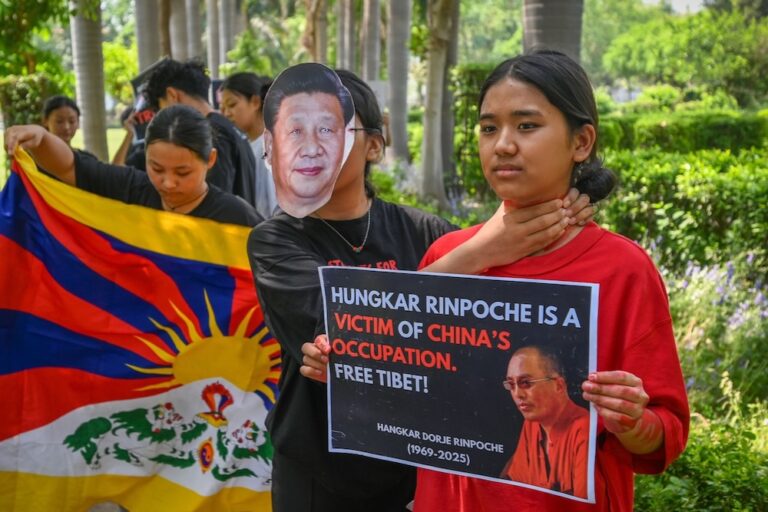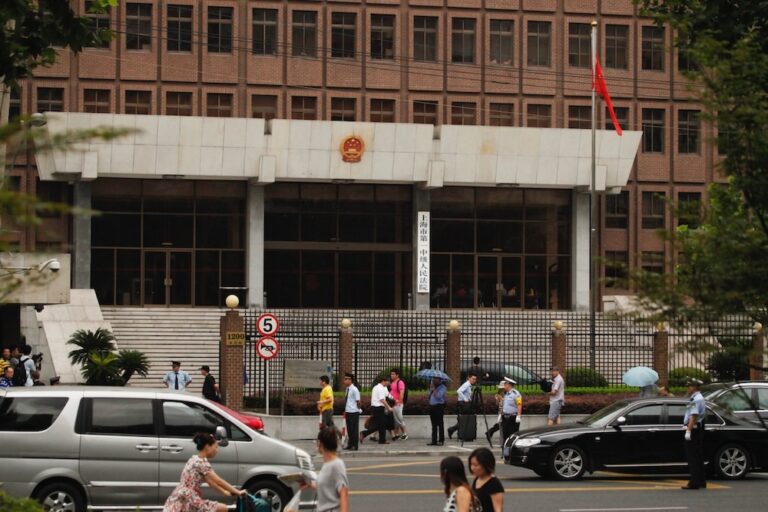The government's closure of a Beijing-based legal aid and research organisation marks an intensification of efforts to silence human rights defenders, says Human Rights Watch.
Cease Attacks on Rights Lawyers
Civil Society Space Shrinks as Legal NGO Shuttered, Lawyers Disbarred
(Human Rights Watch/IFEX) – (New York, July 17, 2009) – The Chinese government’s closure of a Beijing-based legal aid and research organization and disbarment of 53 Beijing lawyers marks a sharp intensification of official efforts to silence China’s human rights defenders, Human Rights Watch said today.
On the morning of July 17, Beijing Civil Affairs Bureau officials raided the offices of the nongovernmental Open Constitution Initiative (OCI). The officials claimed that OCI was improperly registered and confiscated all of its computers and documents.
OCI is a unique organization in China, combining groundbreaking research on officially “sensitive” subjects with legal services for groups and individuals stymied by China’s politicized legal system. OCI’s research has included a recent report exploring the origins of the unrest in Tibet in March 2008. That report criticized the Chinese government’s policies in the region. The organization’s legal activism has included representing parents seeking government compensation for children poisoned through the melamine contamination scandal exposed in late 2008.
“The attack on OCI marks a new low in the Chinese government’s campaign against human rights defenders,” said Sophie Richardson, Asia advocacy director at Human Rights Watch. “This is precisely the kind of organization whose work the government should value, as it helps ease grievances and minimize unrest.”
The raid came just one day after Beijing tax authorities demanded that OCI immediately pay 1.42 million yuan (US$200,000) in unpaid taxes and related fines. OCI representatives subsequently explained that the organization had been slow in paying a portion of its tax bill, but that it had quickly rectified the error and paid all outstanding taxes. They believe the closure to be politically motivated.
Another blow to the rule of law was struck on July 9, when the Beijing Justice Bureau announced via its website that it had canceled the licenses of 53 lawyers for allegedly failing to apply for re-registration ( http://www.bjsf.gov.cn/sy/sytztg/200907/t20090709_545273.html ). The disbarred lawyers include Jiang Tianyong, a high-profile civil rights lawyer who has taken on politically sensitive clients including a Tibetan religious leader charged in the wake of the March 2008 unrest in Lhasa, victims of a Shanxi province slave labor ring freed in June 2007, and members of the banned Falungong.
The denial of the 53 lawyers’ right to practice law follows efforts by the Beijing judicial authorities in May 2009 to pressure legal firms to not endorse relicensing applications of prominent civil rights lawyers. The re-registration deadline was May 31, and this is the first official announcement of lawyers whose licenses have been cancelled.
Earlier this week, the official Beijing Bureau of Legal Affairs also issued a notice to the city’s lawyers urging “caution” in their involvement in the defense of suspects linked to July 5 rioting in the city of Urumqi in China’s restive Xinjiang region. A similar prohibition was issued to Beijing lawyers who wanted to represent Tibetans following the March 2008 protests in that region.
“The Chinese government has a choice: it can let people take their cases through the courts, or it can let them take them to the streets,” said Richardson. “If the leadership continues down this road of eliminating legal aid, banning legal research, and hobbling lawyers, they are simply shooting themselves in the foot.”


